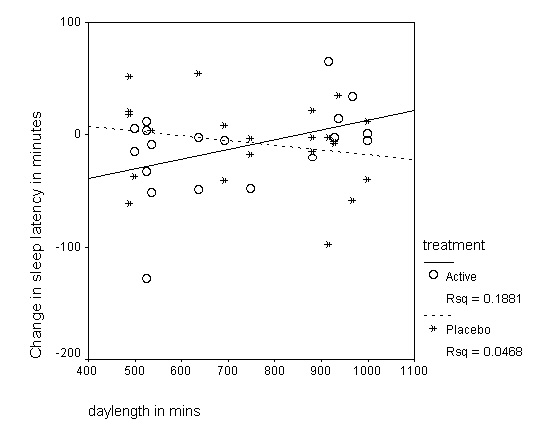
Objective: To study the effect of bright light therapy (10,000 lux) on patients who have agitation or sleep disturbance as part of their dementia syndrome.
Design: Stratified randomised placebo-controlled trial.
Materials and Methods: 48 nursing home residents. Actiwatch generated measures of sleep latency, duration, fragmentation, efficiency and daytime sleep (naps). Sleep chart and rating scale measures of sleep.
Results: A trend for longer sleep and reduced sleep latency with BLT when the days were shorter. Males showed a greater response than females. Rating scale shows significant association between BLT and improvement in sleep. BLT did not affect naps (daytime sleep), sleep efficiency or fragmentation.
Conclusion: Bright Light Therapy has a beneficial effect on sleep duration and latency and the effect is greater in winter. All three means of data collection showed similar effects in response to BLT, making the finding more robust.
Back to S092 Sleep, Circadian Rhythms and Aging
Back to The Eleventh International Congress